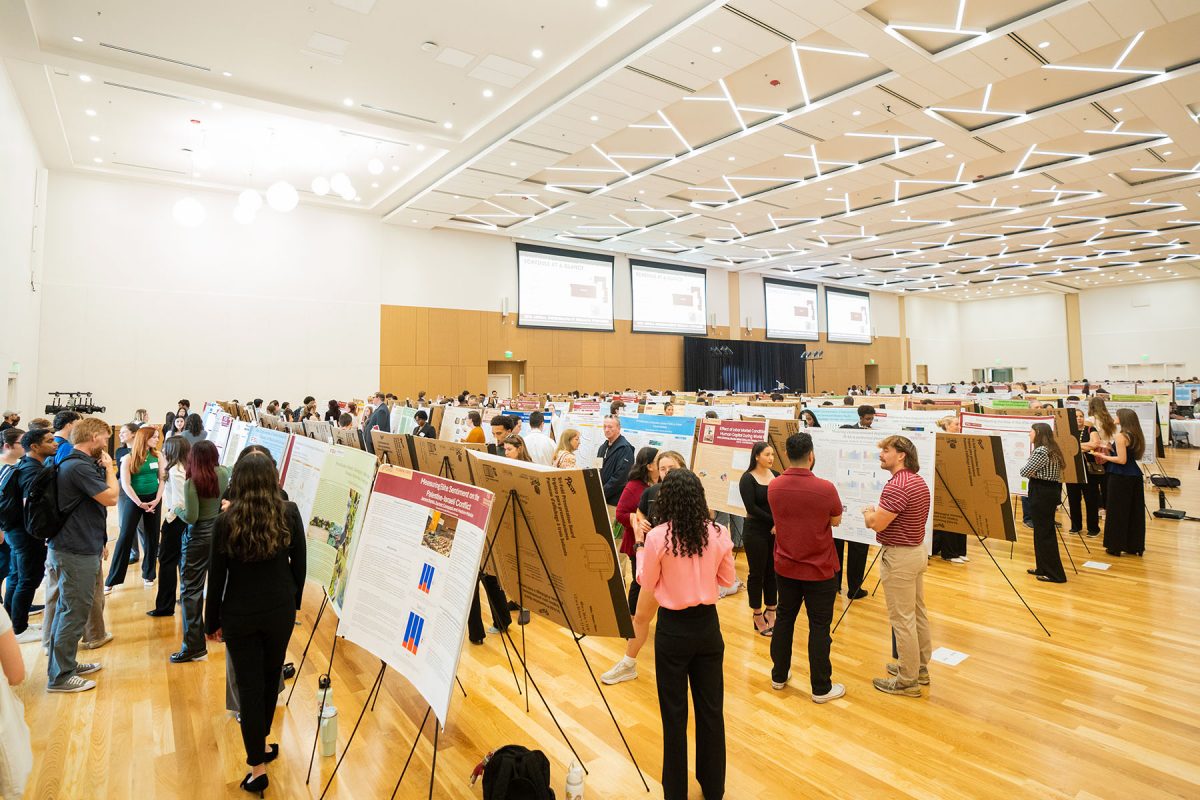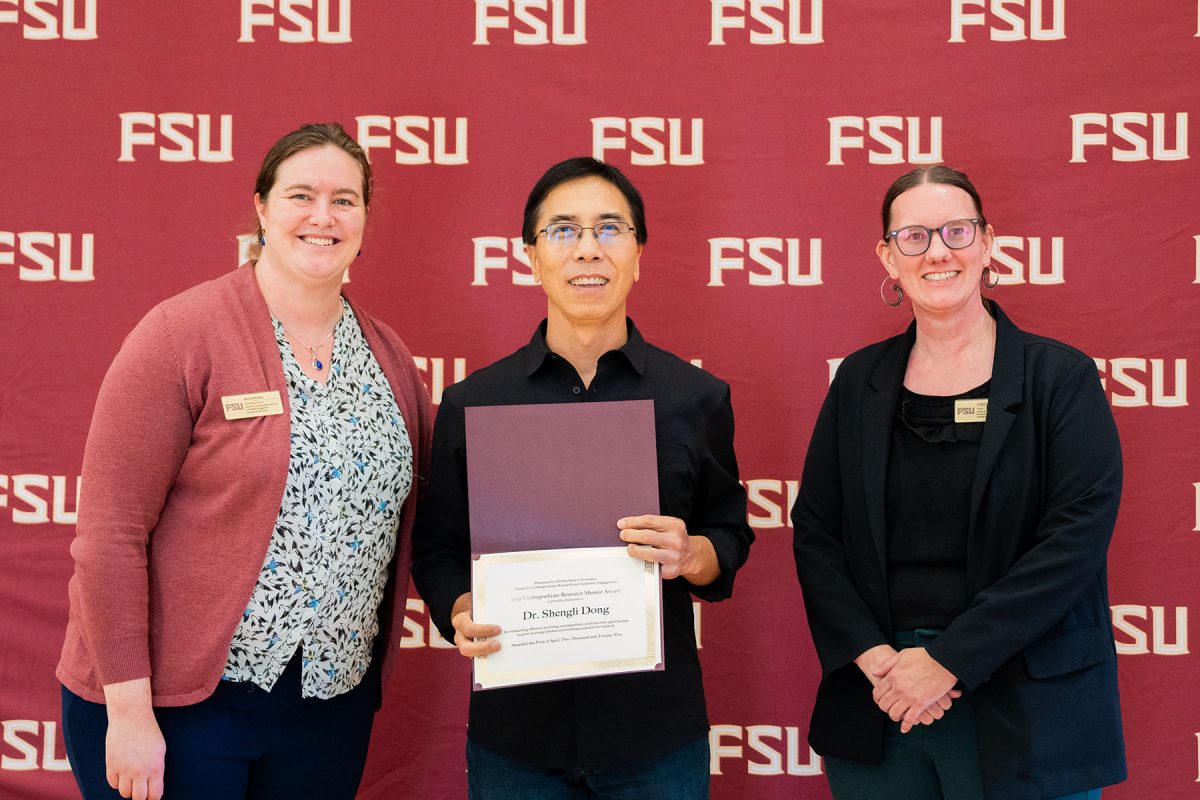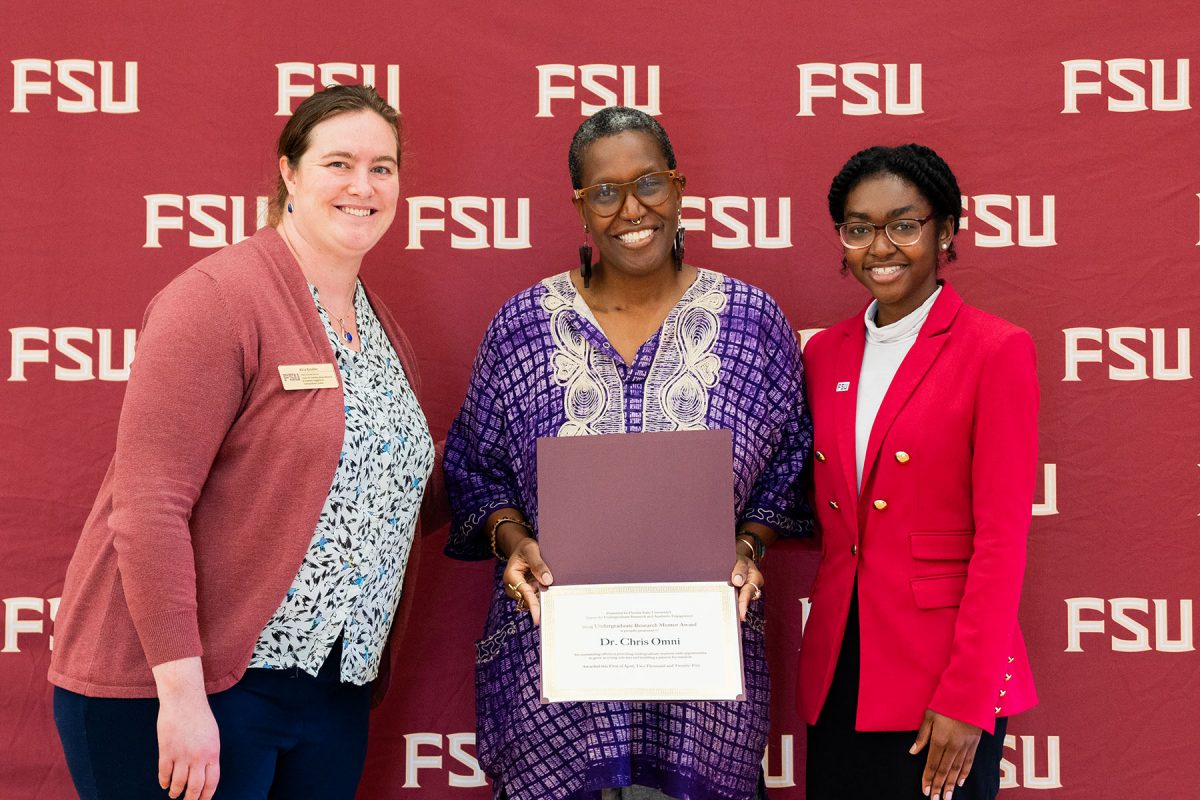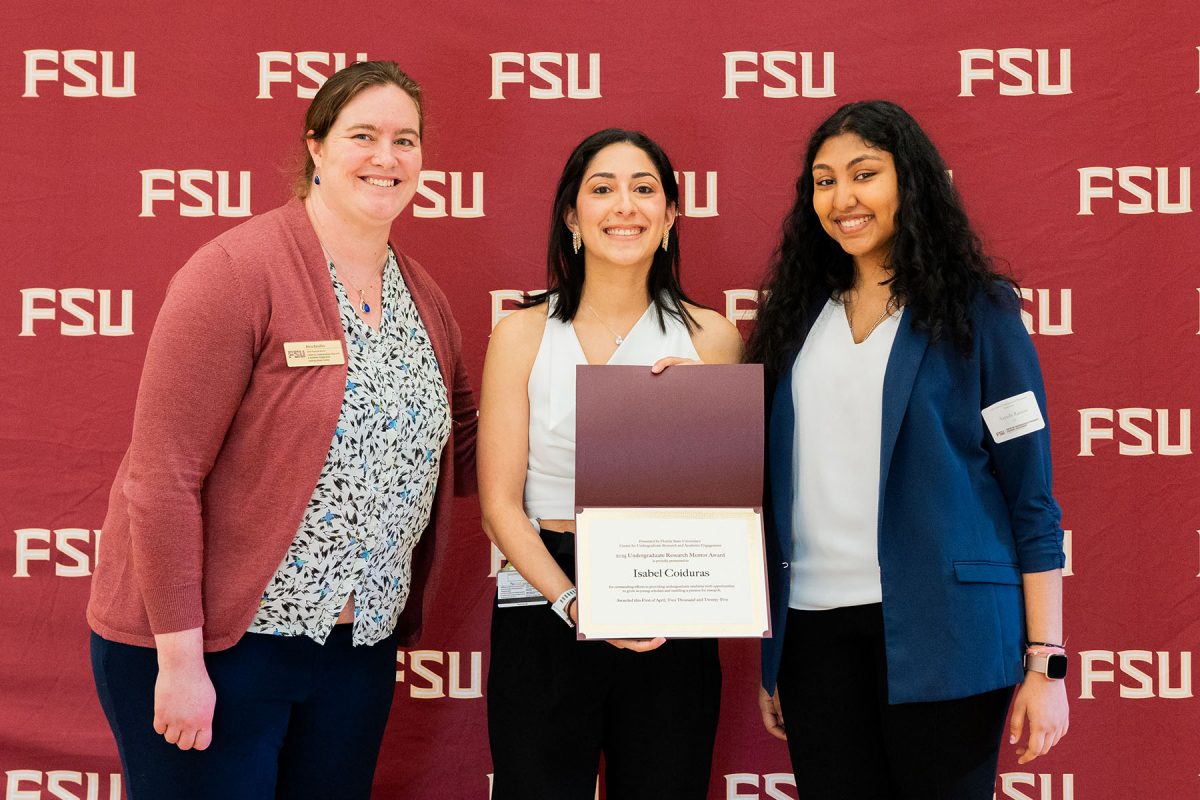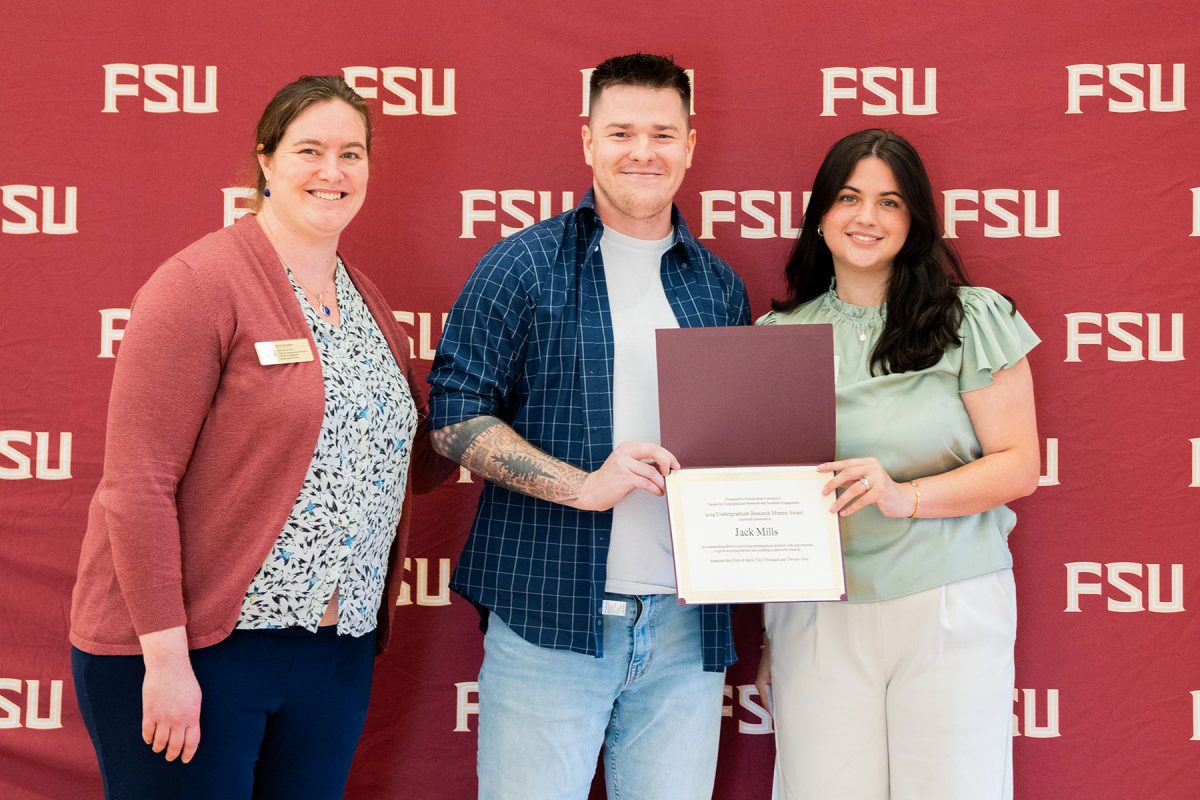Florida State University’s Center for Undergraduate Research and Academic Engagement (CRE) hosted a record-breaking spring symposium for undergraduate researchers Tuesday, April 1, in the Student Union Ballrooms.
More than 700 undergraduate students showcased their research projects at the largest Undergraduate Research Symposium (URS) in the event’s 25-year history. Student projects at the interdisciplinary showcase included more than 500 posters and creative presentations, attracting nearly 2,000 attendees.
“We are overwhelmingly grateful for the hard work of all the students, mentors, administrators and staff who made this year’s symposium the largest event yet,” said Latika Young, CRE director. “This growth is a testament to the ways in which FSU supports undergraduate research and helps students explore their creative and academic interests as soon as they arrive at the university and throughout their undergraduate careers.”
One of the largest university-based symposia in the country and FSU’s only all-campus undergraduate research showcase, the URS includes undergraduate students from all majors, representing various initiatives such as Honors in the Major theses and the Undergraduate Research Opportunity Program (UROP).
Students presented on varied topics including parents’ roles in child reading achievement, risk factors in vascular dementia, the development of polymer-based materials that can withstand space exploration and a historical look at how Florida represented itself at two World’s Fairs.
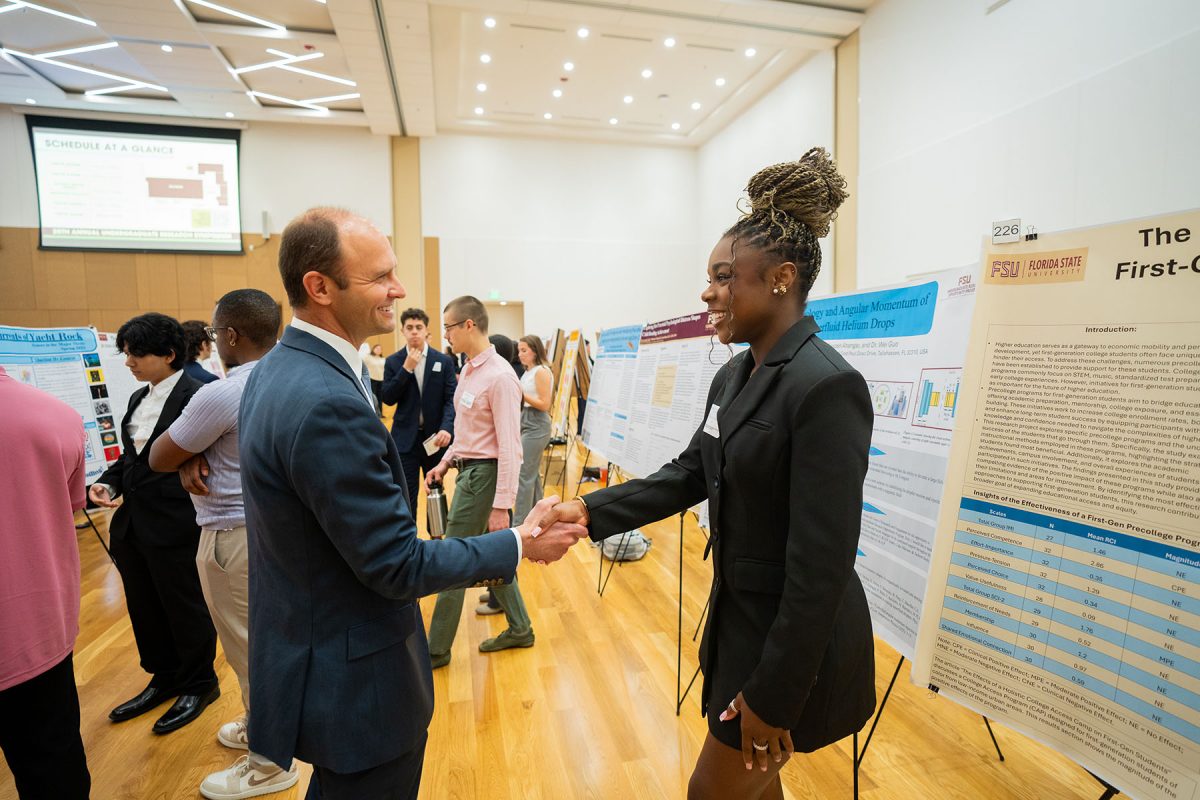
Raven Gadson, a second-year Interdisciplinary Medical Sciences student on the Pre-Clinical Professions track, presented her work examining the behavior of superfluid helium droplets, which has implications for space and ocean travel research.
“This experience provided an opportunity to share the knowledge I gained throughout my research process while engaging with fellow students and professionals,” said Gadson, who is from Fort Myers. “I thoroughly enjoyed being a part of UROP this year and highly recommend participating in this program, as it offers numerous opportunities for academic and personal growth.”
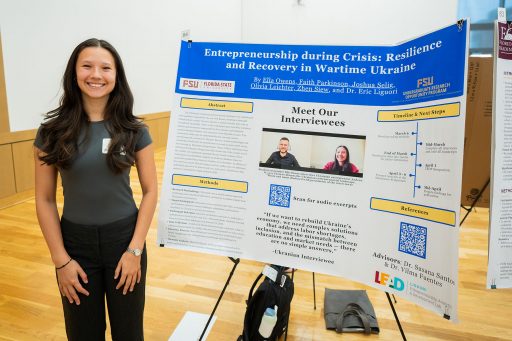
Ella Owens, a first-year business management student from Orlando, presented her research on the pre-war and current entrepreneurial ecosystem in Ukraine, which involved conducting interviews with Ukrainian entrepreneurs using Zoom.
“I would love to do international policy law, so this project, looking at how the culture and landscape has changed in Ukraine, is definitely tailored to what I want to do,” Owens said. “I realize you can do research on pretty much anything you want, and that could be a small question, or it can be something on a much larger scale.”
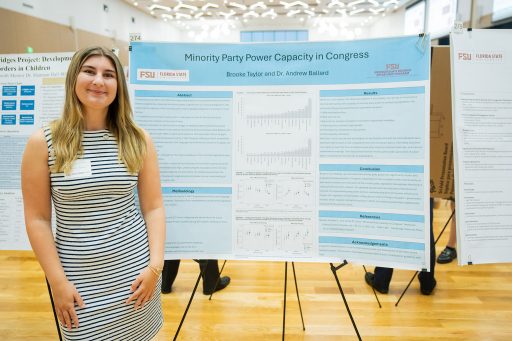
Many students who presented at the symposium have plans to pursue further research or projects. Some will expand upon their UROP research or dive into other subjects through an Honors in the Major project, the IDEA Grant program, a Directed Individual Study with a professor or other opportunities.
Brooke Taylor, a first-year political science student from Boca Raton, presented her UROP research examining actions taken by the minority party that helped them succeed in passing bills in the federal government.
Taylor’s undergraduate research inspired her to pursue working in Congress, and she has been accepted into the Applied Politics & Policy Learning Experience (APPLE), where she will work as an intern in the Florida State Senate and The Washington Center in Washington, D.C.
“What I learned is that there’s all types of research,” Taylor said. “I never knew there was political science research before. I kind of thought about chemistry, the STEM majors, but you can look at research through literature or looking at bills.”
The symposium included Nourishing Creativity, a lunchtime segment for students to present their creative work, such as a project featuring a jazz composition and another about creating a virtual museum of the specimen collection in FSU’s Department of Earth, Ocean, and Atmospheric Science.
The CRE also presented the Research Mentor Awards in recognition of the faculty, post-docs and graduate students who stand out for offering exceptional guidance to the undergraduate students during their research project:
FACULTY MENTOR AWARD: Shengli Dong, a professor of psychological and counseling services in the Department of Educational Psychology and Learning Systems
Nominating student Daisy Perez: “From the very beginning, Dr. Dong fostered an open and welcoming research environment, encouraging curiosity and intellectual growth.”
POST-DOC MENTOR AWARD: Chris Omni, a post-doc in the Department of Geography
Nominating student Eryn Files: “Dr. Omni taught me that research is a joyous responsibility to accurately capture others’ experiences and extract the hidden wisdom.
GRADUATE STUDENT MENTOR AWARD: Isabel Coiduras, a neuroscience graduate student in the College of Arts and Sciences
Nominating student Aayushi Ranjan: “One of [Ms. Coiduras’s] most remarkable qualities is her ability to inspire critical thinking and problem-solving skills.”
GRADUATE STUDENT MENTOR AWARD: Jack Mills, a graduate student in the College of Criminology and Criminal Justice
Nominating student Morgan Walker: “[Mr. Mills] has gone above and beyond to make sure we understand how important our role is and that this project is just as much ours as it is his.”
For more information about the CRE and undergraduate research, visit cre.fsu.edu.




